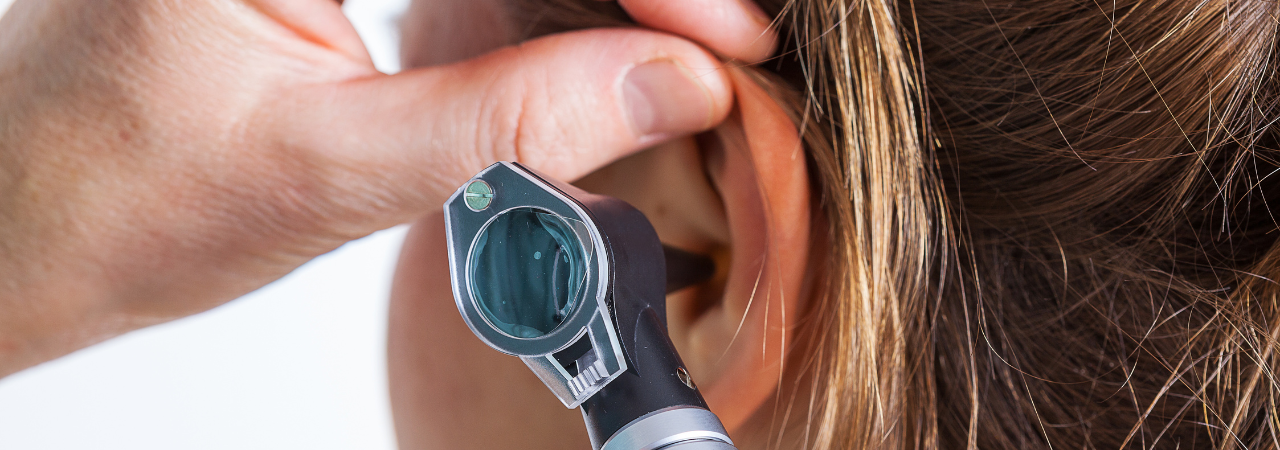What dental assistants should know about hearing loss

Dental assistants know all too well that a dental office can get noisy. You’ve probably learned to live with the various sounds of humming, drilling, and screeching from dental equipment, and perhaps you’ve become so accustomed to these sounds that you tune them out. Still, you might wonder if this constant noise can be harmful to your hearing after a while. With March 3 designated as World Hearing Day by the World Health Organization, let’s take a closer look at the research and what you can do to protect your ears in the dental office.
Can hearing damage occur in the dental office?
Potentially, yes. Dental equipment such as handpieces and ultrasonic scalers can reach up to 100 decibels, according to the American Dental Association. Older or poorly maintained machinery can be even louder. These sounds may seem like mere annoyances when you experience them, but they can cause issues for your ears over time.
Per the Centers for Disease Control and Prevention, prolonged exposure to noise over 70 decibels can result in hearing damage. To put these numbers in perspective, the Occupational Health and Safety Administration says that if you need to raise your voice to speak to someone three feet away due to noise, you might be exposed to decibel levels of 85 or greater.
What does the research say?
Various studies have found that dental professionals may be at risk for hearing damage. One study published in Oral Health in 2019 found that dentists experience hearing loss at twice the rate of the general population. According to the National Institute on Deafness and Other Communication Disorders, about 15% of American adults report difficulty hearing. Because dental assistants work right alongside dentists, it stands to reason that they also have an increased risk of hearing damage. Research published by the Journal of Occupational Health in 2020 found that dental assistants and technicians are most affected by loud noises in the dental office.
The extent of hearing loss for dental professionals can depend on the frequency and intensity of the noise. The length of exposure is also a significant factor. Those who have worked in the dental field longer are at a greater risk for hearing damage, according to a 2023 article in Occupational Medicine. The analysis states that noise-induced hearing damage can start to become noticeable for dental professionals with 10 or more years of experience.
Since the noise from dental equipment isn’t loud enough to cause immediate hearing damage, dental professionals may not notice any effects until well into their careers. When symptoms develop, they may include tinnitus (ringing in the ear), sound distortion, and difficulty hearing conversations, especially in noisy environments. If you’re experiencing symptoms of hearing loss, schedule an appointment with your healthcare provider for further evaluation.
How can dental professionals avoid hearing damage?
Fortunately, noise-induced hearing damage is preventable. Your mind probably goes to masks, gloves, and safety glasses when you think of personal protective equipment (PPE). But dental professionals can also keep themselves safe with proper ear protection.
If you’re concerned about potential hearing damage from your work, consider wearing earplugs, protective earmuffs, or noise-canceling headphones while operating loud dental equipment. Over-the-counter earplugs can provide some decibel reduction. You can also get custom earplugs from an audiologist that may offer greater protection from noises in the dental office. Additionally, an audiologist can advise you on protective devices that still allow you to hear patients and co-workers. You may want to talk to your doctor or office manager about covering the cost of ear protection.
Getting regular hearing tests is also helpful for dental professionals. An audiologist can determine your current hearing capability and monitor for changes in future appointments. The Cleveland Clinic says that people who are regularly in loud environments may need to have their hearing evaluated once per year.
This article is for informational purposes only and not intended as medical advice. Consult a licensed medical provider to discuss your condition and potential treatment.

